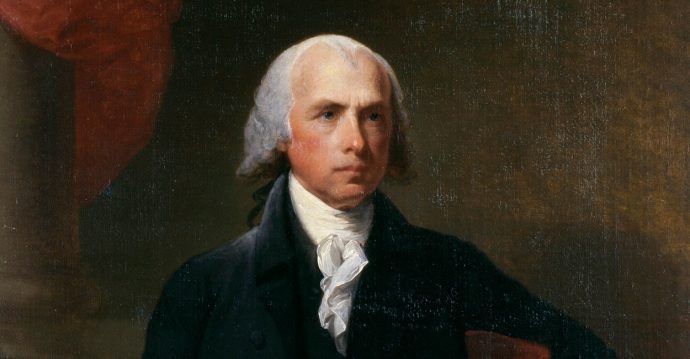If we’re going to recover that understanding, a good place to start is with James Madison. Here is Michael Berry writing at The Daily Signal:
Friday, Dec. 15, marks the anniversary of the day our young nation ratified the Bill of Rights in 1791.
Given the national discussion in recent days over whether the government may compel speech from an ordinary baker, now is an especially good time to consider the very first words of our charter document: “Congress shall make no law respecting an establishment of religion, or prohibiting the free exercise thereof.”
Many today mistakenly interpret these religion clauses to mean something like, “Americans are tolerant of private religious conduct.” But mere “toleration” of “private” religious conduct was precisely what James Madison, a primary author of the Bill of Rights, was careful to avoid. He favored the protection of robust freedom.
Madison’s commitment to religious freedom in public may have begun when he reviewed the proposed Virginia Declaration of Rights in 1776. That document suggested “all men should enjoy the fullest toleration in the exercise of religion.”
Yet years earlier, he had personally witnessed the supposedly tolerant Colony of Virginia imprison Baptist ministers because their beliefs were out of step with the predominantly Anglican colony. Such religious “tolerance” sent minority ministers to jail.
More fundamentally, Madison recoiled at the notion that exercise of religion was a gift from government to be merely “tolerated.” He saw it rather as a hallmark of a free society—an unalienable right endowed by a creator—that exists independent of government.
Many years after witnessing religious persecution in Virginia, Madison chaired the House conference committee on the Bill of Rights. In that role, he seized the opportunity to reject the language of toleration, instead grounding his proposal for the First Amendment in the language of individual liberty: “the civil rights of none shall be abridged on account of religious belief or worship … nor shall the full and equal rights of conscience be in any manner, or on any pretext infringed.”
Read more: How to recover a proper understanding of religious liberty — The Daily Signal

